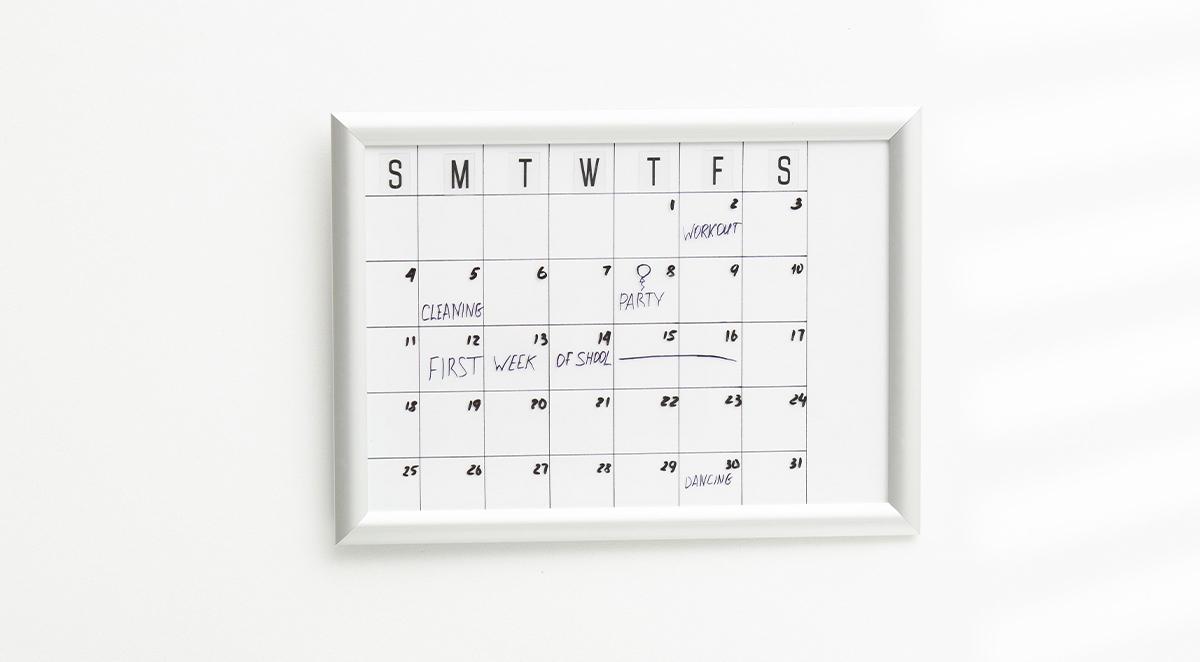Spring is almost in the air here in Northville, MI. At least, that’s what it might say on the calendar. We know it could still be months before the weather truly does begin to reflect the new season.
If you are reading this when it is published, you are likely in the thick of the most challenging part of your child’s school year while also dealing with some of the gloomiest weather of the year.
Your family may be trying to just get through the final months of school. You’re helping the kids grind out final assignments while you feel like you’re holding on by a thread. Summer could not come fast enough. However, if it comes too fast, your kids won’t have time to get all their projects and homework done.
So, why would we choose to publish an article about next school year now? This is exactly the time when you are thinking about how next year is going to be different. You may have thought the same thing last year and the year before.
Right now, many parents are thinking about how they are going to plan to make changes after the semester ends, but summer is just as busy as the school year. Today is the day to plan for the best next school year, while the experience and memories are fresh. This guide will help your family set goals, meet expectations, and maybe even enjoy the next school year.
Here is your comprehensive guide to having the best school year possible.
Before the First Day of School
Planning to have a great school year begins long before the first day of school.
1) Set Goals and Expectations
Do your kids understand what you expect of them in terms of academics? Do you have any idea what to expect from them? It is vital to get on the same page about goals and expectations before the first day of school. Here are some guidelines to help you and your children design effective goals:
Do your kids understand what you expect of them in terms of academics? Do you have any idea what to expect from them? It is vital to get on the same page about goals and expectations before the first day of school.
Here are some guidelines to help you and your children design effective goals:
- Include your children in the process of setting expectations so that they feel in command of their own education.
- Make sure you have reasonable expectations for each subject.
- Set some stretch goals, and don't be scared to be ambitious.
- Consider potential for rewards if your child meets or exceeds the goals you set together.
- Don't just give out rewards when they manage to meet their goals. Make sure they are also rewarded for the effort they put into meeting academic challenges.
- Maintain a cheerful attitude throughout the year.
- As the school year progresses, don't be afraid to make changes to your goals and expectations.
If your primary goal is to have a great school year, setting goals will be key to ensuring you have the best chance at making the most of the first and second semesters.

2) Get Organized
Many elementary and middle school kids, believe it or not, will not take the initiative to get organized on their own. If your child is not one of the rare students who love to organize their things, they will require assistance and encouragement.
Taking an active role in assisting your child in becoming more organized, on the other hand, can pay off for them and you for years. Organization is an important step on the way toward having an awesome school year.
3) Establish a Calendar
Keeping up with assignments is vital to having a great school year. Your calendar should be large, visible, and in a place where you and your child will see it every day. It should include schedules, assignments, time for studying, and built-in breaks.
If your child is following the calendar and still having trouble meeting their goals and completing assignments on time, it would be wise to simplify it and take a break from some extracurricular activities.

4) Carve Out a Study Space
Having a designated study area benefits children. Even if it can't be a whole room, they will benefit from having their own nook where they can leave distractions behind and study.
Before the fall semester begins, make sure your child has a space they can call their own.
5) Meet Your Child’s Teacher(s)
Your teachers will be happy to meet you and discuss your family’s desire to have the best school year. They will be able to provide tips for how to keep up with work in their classrooms and become masters of their subjects.
During the First Semester
Once the semester is underway, it is going to be more challenging to make changes, pivot, and adapt. The plan you have established before the semester should help you stay on track and meet challenges head-on. Here are some tips for making the most of the first semester.
1. Start the Semester Strong
Do you ever feel like you’re already holding on by a thread on day one? It’s time to break that cycle and play to start strong:
- Bedtime: As you lead up to the first day of school, start enforcing bedtimes and wake-up times.
- Calendar: Start keeping your calendar on day one.
- Celebrate: Celebrate the first day of school with a special dinner or some ice cream.
- Attitude: Be cheerful, relaxed, and encouraging. If you’re stressed, try not to show it.
2. Avoid Getting Off-Track
You know that one missed assignment can seem to throw everything off. Do your best to keep up with your calendar and assignments. If you start to get off track, reevaluate your schedules to make sure you really have time for academics.

3. Practice Good Nutrition and Exercise
For learning and growing children, the CDC recommends diets that are high in dietary fiber and low in fat. Fruits and vegetables, whole grains, and protein-rich diets will make children feel cheerful and full while also improving their ability to concentrate and remember what they've learned.
Exercise is important for learning, in addition to helping your child eat the correct foods. Spending time doing something other than studying may seem contradictory, but if your primary or middle school kid does not receive enough exercise, they will struggle to concentrate on their schoolwork.
4. Help Them Take Breaks
To ensure they get enough exercise, you will have to make sure your child takes breaks. They need a few minutes of rest every hour, but also days of relaxation. If every minute is actively scheduled, you can expect stress and anxiety to creep into your great school year.

5. Keep Them Motivated During the Holidays
The holidays are a special time and offer a mid-year reprieve for students. However, that time off can halt momentum and make it difficult for your child to settle back into their routine. Help your child stay focused during the holidays:
- Help them rest. The holidays cannot just be a time to catch up. It should be a time of focusing on family and resting.
- Don’t let them establish bad routines. Some video games and screen time may be appropriate, but if the entire holidays are spent behind a screen, it’s going to be challenging to get back to the school routine.
- Encourage your child to read and do other educational activities.
- Make sure your child gets outdoors, even if the weather outside is somewhat frightful.
During the Second Semester
Winter break is typically not as fun or restful as summer break. By the time the first day of the second semester begins, your kids might already feel burned out. Here is some advice for how to help avoid burnout and keep up the momentum throughout the second half of the school year:
1. Keep Doing What’s Working
Is your child sticking to their plan? Are they meeting their goals? Keep doing the things that are working.
2. Make Adjustments
Have you identified some parts of your routine that are not effective? It is time to reevaluate and make necessary adjustments.

3. Don’t Give Up
Your child needs your encouragement to keep going. Don’t give up on them or your plan.
4. Diet, Exercise, and Breaks
This is not the semester to abandon proper nutrition, exercise, and plenty of breaks. Even if assignments are starting to pile up, saving time with quick, unhealthy meals, skipping outdoor time, and working through breaks will only end up contributing to stress and anxiety.
5. Talk To Your Teachers
Your child’s teachers will be able to help you with your plan during the second semester as they did during the first.

End of the School Year
You reached the finish line. Congratulations! It’s time to rest and relax - for parents and students. However, there are a few things to do after the last day of school to help ensure you’re ready for next year. Journal answers to these questions to help you prepare for another great school year:
- What would you change about your plan?
- What improvements would you make to your child’s study area?
- What worked well? What didn’t work as well?
- What healthy foods does your child like to eat?
- What methods of study seem to resonate with your child?
- How can you ensure your child will continue to have great school years?
One of the best ways to ensure your child has an excellent school year is by enrolling them in the right institution. The supportive community at St. Paul Lutheran School is committed to making sure your child excels each and every year they are with us. Contact us for more information about how your child can excel at our private Christian school in Northville, MI.
